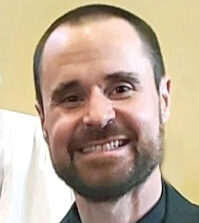 |
If God already knows what he is going to do for us and for others, what is the point of praying?
Katie was worried about her husband’s business trip. She worried about freezing weather. She worried about reports of flooding. Her worry increased after he texted about a fire that broke out in his Airbnb. All this piled on top of worries about his health. It was poor and getting worse. She bombarded her husband with notes about her worries.
Martin, her husband, didn’t ignore her. In one of his replies, he advised, “Pray, and let God worry.”
What do you think of that reply? Prayer mystifies us, especially when we remember that the God to whom we pray is an omniscient God. He knows the past, present, and future. He knows possibilities. When Jesus told us not to worry about things, he gave as this reason, “Your heavenly Father knows that you need them” (Matthew 6:32). He knows before you know, before you think about praying. David sings in Psalm 139, “Before a word is on my tongue you, Lord, know it completely” (verse 4).
If that’s true, why pray? Why pray to a God who already knows and already has an answer worked out? Is it a spiritual placebo? Is it pointless? Let’s think about prayer. Let’s see if that husband gave good advice. Let’s answer the most basic question: Why pray?
God asks us to pray
We pray because God says so. Christ said, “Ask . . . seek . . . knock” (Luke 11:9). This refreshes the Lord’s Word in Psalm 50:15, “Call on me in the day of trouble.” Every student dreams of this memory treasure: “Pray continually” (1 Thessalonians 5:17). Go back to catechism class. This is Second Commandment stuff. We use God’s name in every trouble, pray, praise, and give thanks. As the Large Catechism says, God “has not left it to our choice. But it is our duty and obligation to pray, if we would be Christians” (3:8).
This sounds law oriented. Does this feel like “or else”? Well, that’s to be expected. We don’t do well using God’s name. We throw it around in empty ways and manage not to pray. When we do pray, it’s perfunctory, mechanical, and without much thought. Perhaps it’s only that last gasp, “God, it’s me, Ben. I know I don’t talk to you much, but if you’re up there . . .” Have mercy on us, O Lord.
Again, the Large Catechism rescues us. “On [Luther’s] account this prayer would amount to nothing. But it shall succeed, because God has commanded it” (3:13). This turns us away from “Pray, or else” thoughts. It turns us away from us and turns us to the power of prayer: the promise of God. There must be something to prayer if God says to do it. If God says to pray, you should count on prayer.
God promises to hear and answer
I purposely left ellipses in my citation of Luke 11. I bet you filled in the blanks. “Ask and it will be given to you; seek and you will find; knock and the door will be opened to you.”
God makes many promises, but few are so bold and explicit. Again, go back to catechism class. Your pastor taught you this. You teach it to your children. “We can be sure that these petitions are acceptable to our Father in heaven and are heard by him, for he himself has commanded us so to pray and has promised to hear us” (Small Catechism, The Doxology).
That promise gets bigger when you hear that word “Father.” Remember, that’s whom Jesus taught us to pray to: “Our Father.” We have a dear Father. He says we are his dear children. He shows us how dear we are. He gave up his Son so we would be his children. That Father commands us to pray and promises to hear us.
But just to hear us? Well, sometimes isn’t that enough? Sometimes isn’t it enough to have someone to talk to about your doubts, worries, concerns? Yes, it is.
But now think about this. When you speak with your Father, the one who sent Jesus to die for you, you talk to someone who does things. David sings in Psalm 55, “Cast your cares on the LORD and he will sustain you” (verse 22). When I pray, I’m saying something to someone who hears and does.
We pray and let God worry. We pray and let God work.
We hear about Abraham begging the Lord to spare Sodom (Genesis 18). The Lord lingered after the angels headed to Sodom. Abraham lingered too. Both had something on their mind. Abraham thinks about Lot living in Sodom. God thinks about Sodom because he does not desire the death of the wicked. Then Abraham prays for mercy. And God agreed to have mercy . . . because Abraham asked.
Or turn to Isaiah 38. Hezekiah is sick. Isaiah says this sickness will end in death. As Isaiah departs, Hezekiah prays to the Lord to spare his life. Before Isaiah gets more than a few steps away, the Lord turns him around. “I have heard your prayer and seen your tears; I will add fifteen years to your life.” Don’t tell me God doesn’t do stuff. It’s because people pray.
The Large Catechism says it this way: “For what do you imagine has done such great things up till now? What has stopped or quelled the counsels, purposes, murder, and riot of our enemies, by which the devil thought he would crush us, together with the gospel? It was the prayer of a few godly people standing in the middle like an iron wall for our side” (3:31).
Of course, I don’t have Isaiah coming to tell me what the Lord is or is not going to do. That would be nice. Even just a quick text. This is my struggle with prayer. How does God deal with my prayers? How will he answer? Has he answered yet? I may not know. I’m not God.
But look at God. Look at Christ. He taught us to pray to the Father. He took his own advice. Watch Jesus in Gethsemane. He prays about things he knows must happen. He prays about things the Trinity settled from eternity. But Jesus prays. He prays persistently. He knocks on his Father’s door. He knows God is not annoyed to hear his words. Then he says, “Not my will, but yours be done” (Luke 22:42).
That’s what we do. We pray to an all-knowing God. No matter what we pray for, we say, “You do it, Lord. You know what’s best. You’ll do what’s best.” We pray and let God worry. We pray and let God work.
That husband and wife mentioned earlier? Yes, they are that Katie and Martin—the Luthers. Martin died a week after telling his wife to pray and let God worry. That was hard for Katie. But she had the shelter she needed. She had Christ who taught her to pray, to call out, “Father.” He let her know that God is a dear Father and she is his dear child. That’s why we pray. God does worry about us. God ended that worry through the sacrifice of Jesus for us. He’s got it under control.
Author: Benjamin Tomczak
Volume 109, Number 07
Issue: July 2022
- Please explain: How was it right for Jesus to provide so much wine at the wedding at Cana?
- Please explain: Was John’s baptism the same as the baptism commanded by Jesus?
- Please explain: What is the point of praying?
- Please explain: What comfort does the Bible give grieving Christians?
- Please explain: What did Jesus mean about a camel going through the eye of a needle?





